All three Brighton and Hove MPs spoke during the debates on Syria in the House of Commons yesterday (Monday 16 April). Here’s what they said …
Caroline Lucas questioned Theresa May after the Prime Minister’s statement about the bombing of Syria in response to the Assad regime’s use of chemical weapons on civilians. The Green MP for Brighton Pavilion said: “The Prime Minister has said that the legal basis relies on there having been no practicable alternative to the use of force.
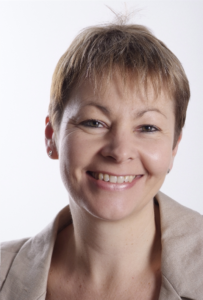
“Further to that, can she confirm exactly when the UK identified Him Shinsar as a chemical weapons storage facility, when it identified the chemical research facility at Barzeh as a chemical weapons research centre, when this information was reported to the OPCW (Organisation for the Prohibition of Chemical Weapons) and whether the UK has asked the OPCW to inspect both sites? ”
Mrs May replied: “We have been very clear that we would like it to be possible for the OPCW to investigate sites in Syria, for there to be proper identification of the chemical weapons and for there to be proper accountability for the use of those chemical weapons. ”
Ms Lucas said: “Did you ask? ”
The Prime Minister said: “Well, may I say to the honourable lady that, last Tuesday at the United Nations Security Council, there was going to be a proposal and resolution that would have enabled a proper investigative mechanism to be reintroduced to look at the use of chemical weapons and at what chemical weapons were available in Syria and held by the regime and at their capabilities and to be able to ascertain accountability for those chemical weapons.
“That draft resolution was vetoed by Russia.”
Later Hove MP Peter Kyle spoke. He said: “The Prime Minister acted entirely appropriately. If these chemical weapons became normalised, not only would they be used against civilians in the future, but the time would surely come when our own servicemen and women would go into action for our country and they would be used against them too. That would be unforgivable.
“However, military action is not a replacement for diplomacy. Does the Prime Minister accept that we need a global response on the scale of the Gleneagles summit – when we focused the world’s attention on international development – to tackle Syria and put strategy behind it once and for all? ”
The Prime Minister replied: “I thank the honourable gentleman for making the point that if chemical weapons were allowed to continue to be used, they would be used by other people, not just against civilians but potentially against service personnel.
“We do want to ensure that there is a major effort on the diplomatic side to find a resolution to the situation in Syria. That is why we continue to back the Geneva process and will work to ensure that it is reignited.”
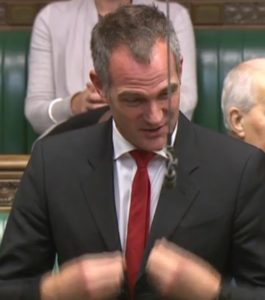
After the debate on the Prime Minister’s statement to the House of Commons, there was an emergency debate on the situation in Syria at the request of Aliosn McGovern, the Labour MP for Wirrall South.
Her fellow Labour MP, Lloyd Russell-Moyle, said: “I appreciate that my honourable friend is making a very important speech. While we may be on different sides of the argument on bombing – (Other members chorused: “Oh!”) Wait a second, because I want to say something positive …”
The Speaker, John Bercow, interrupted: “I say very gently to the honourable gentleman, blurt it out briefly, man.”
The Brighton Kemptown MP said: “I spent the first week of the recess in northern Syria – I left the day before the attacks happened – and I met the Kurdish leaders.
“My honourable friend mentioned the involvement of women. Does she recognise that the role of the Kurdish people in involving women is really important and that any discussions must include the Kurds in northern Syria? ”
Alison McGovern said: “That is extremely helpful. I would just say to all members that if they think they can do politics without women, well, they are wrong. ”
Later Mr Russell-Moyle said: “I do not want to rehash the points made by other honourable members, but generally I support the tone of the debate.
“I totally agree with many colleagues who have said that we must have a joined-up and co-ordinated strategy for how we support the people of Syria in diplomatic, humanitarian and other ways.
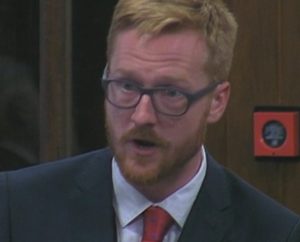
“ On the diplomatic strategy, resolution 377A of the General Assembly (of the United Nations) – the “Uniting for Peace” resolution – would allow this government to convene an emergency session of the GA to seek a majority there.
“If that majority was found, it would provide a level of backing under international law that would give some legitimacy to further actions and strategies on Syria.
“I want to focus most of my comments on my trip to northern Syria a week ago. I met a number of the Kurdish but also the Arab and Turkmen leaders who hold joint positions in the northern Syrian region administration.
“Often we talk about the disaster of Syria but what the northern Syrian authority has managed to achieve despite all the disaster going on around it is rather remarkable and we should be basing our strategy for Syria on that.
“It has achieved a bottom-up democracy in which local organisations co-ordinate at the parish level to ensure basic humanitarian provision, in which women must co-chair every single level of government – that is remarkable for the region and for the world – and in which there is a quota to ensure that 40 per cent of seats in all authorities in the northern Syrian region are reserved for non-Kurdish minorities, which shows the pluralism that these people are trying to build.
“It also has a fighting force that led in fighting Daesh and its fascist ideology all the way back to the borders.
“What I heard there was a feeling that these people are now being let down by the British government. With the incursion into Afrin by Turkey, a supposed British ally, they feel that they have been left out in the cold.
“I spoke to the co-Prime Minister there, who said that Russia and Syria had made them an offer: if they got into bed with them, they would give them protection against Turkey. They rejected that offer. They could not get into bed with Assad because they wanted democracy.
“We must ensure that we uphold the work that those people have done, rather than abandoning them to the onslaught. Hundreds of thousands of people have now been displaced in Afrin and hundreds have died.
“There is one thing that the government could do. A number of military fighters in the region who have fought Daesh are ill and need advanced medical treatment, but the government are refusing them visas through the new corridor that has opened up into Iraq …”
Again the Speaker interrupted, saying: “Order. I am sorry but we are time-constrained. ”
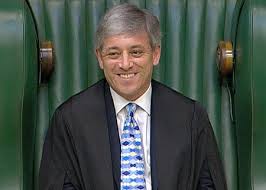
Caroline Lucas also spoke, saying: “I, too, thank the honourable member for Wirral South (Alison McGovern) for her initiative in securing this important debate. I share the moral outrage expressed on both sides of the House – Assad and his henchmen are barbarians and the desire to do something to stop them is deeply and keenly felt, as colleagues on both sides have expressed sincerely and passionately – but our guiding principle must surely be that whatever we do must have the best chance of reducing suffering in the region, and I remain to be convinced that the military strikes we have seen are the best way of doing that.
“Air strikes against chemical weapons facilities might help us to avoid feeling impotent and irrelevant, yet taking action that risks escalating and creating further loss of life and suffering would only perpetuate the problems we all want to solve.
“Moreover, in places such as Libya, as in Syria, such action has time and again proved a distraction from the difficult, relentless and all too frequently neglected work of waging peace, which is a lot more difficult than waging war.
“In my brief speaking time, I want to challenge those who suggest that those of us who question the military action are somehow in favour of doing nothing. That is not the case.
“There is a vast amount we could be doing. For example, we should be cracking down on Russia, through further sanctions and pursuing diplomatic channels too. It is worth noting that US sanctions against Russia are finally beginning to bite.
“Last week, new US sanctions against seven oligarchs, 17 top officials and 12 companies led to tens of billions of dollars in losses on Russian markets within just a few hours last Monday and the rouble recently suffered its biggest daily fall in over three years.
“We now need to double down on these actions, even if that has an effect on our own economy. The right honourable member for Chingford and Woodford Green (Iain Duncan Smith) would probably find it as worrying as I do that I find myself in agreement with him over the issue of energy in the EU.
“We could be taking more action there to put pressure on Russia, even if it comes at a cost to our own economies.
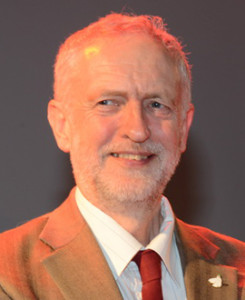
“While moral outrage is all very well, we also need to invest in our own moral authority. Britain urgently needs to get its own house in order if it wants to be a credible positive influence on the world stage. That means deploying the UK’s considerable power and influence in the world to advance the full enjoyment of human rights, scaling back and ending alliances of convenience with repressive, aggressive or corrupt states such as Saudi Arabia, beginning with a ban on arms exports to such states, restoring the UK’s diplomatic capabilities, starting with a reversal of the cuts to the FCO (Foreign and Commonwealth Office) budget, championing constructive engagement and multilateral forums and in the longer term, as others have said, working towards reform of the UN as well.
“We also need to expend serious and sustained effort to enhance and expand UN peacekeeping and peacebuilding capabilities and to strengthen and fully resource the International Criminal Court and the process of establishing and supporting war crimes tribunals.
“How can we be serious as a state about peacebuilding if the government continue to boycott UN attempts to prohibit nuclear weapons, especially at a time when the world faces the renewed threat of nuclear strikes?
“Finally, two quick things: I completely agree with everything that the honourable member for Wirral South and others have said about the importance of taking more refugees and I have been supporting a war powers Act for many years but it has to be a free vote.
“We cannot outsource our responsibility for making that decision to the party whips. We, as MPs, have to take that moral decision. ”
Labour leader Jeremy Corbyn spoke towards the end of the debate. Among other things, he said: “I pay tribute to my honourable friend the member for Brighton Kemptown (Lloyd Russell-Moyle) for the visit he made and his support for the Kurdish people’s right to their own identity.
“Whatever the final outcome in Syria, I hope that the Kurdish people are respected and get the right to their own self-identity, as they deserve.”







